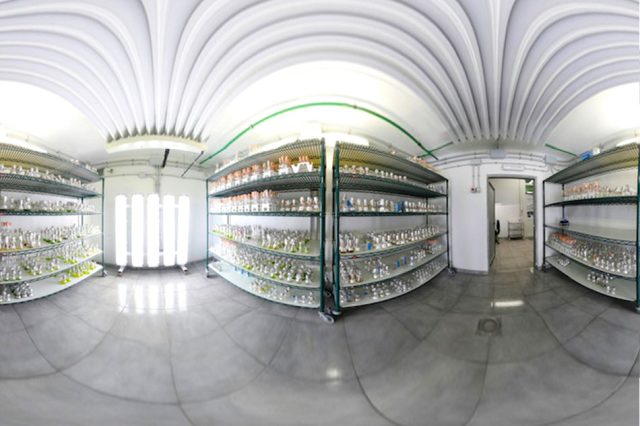,
- Collection name: Banco Español de Algas – Spanish Bank of Algae
- Acronym: BEA
- WDCM number: 837
- Institution: University of Las Palmas de Gran Canaria (ULPGC)
- Address:
Muelle de Taliarte, s/n
35214 – Teld, Las Palmas
Spain
- Website: https://marinebiotechnology.org/en/beaen/about-us.html
Website of the catalogue or database of the collection: https://marinebiotechnology.org/en/store/strain-cultures.html
Twitter/X: @BEA_ULPGC (Banco Español de Algas – Oficial)
LinkedIn: https://es.linkedin.com/company/banco-espa-ol-de-algas
Instagram: https://www.instagram.com/bancoespanoldealgas/ - Correspondence data:
E-mail: antera.martel@ulpgc.org; amartel@marinebiotechnology.org
Tel.: +34 928 133 290
Correspondent: Antera Martel Quintana,antera.martel@ulpgc.org, +34 928 133 290
Member holdings
Group(s) of biological resources stored in the collection: cyanobacteria, eukaryotic algae (microalgae and macroalgae)
The BEA holds a total of 2,188 clonal strains. Most belong to Chlorophyta and Cyanobacteria (39 % each), followed by Heterokonta (6 %) and Dinoflagellata (5 %). The remaining 11 % corresponds to other minor phyla.
Services offered
Research
BEA focuses on the preservation and biotechnological valorisation of microalgal and cyanobacterial strains. Its research is centered on cultivation and processing techniques that transform algal biomass into high-value products such as bioactive compounds, biostimulants, and biopesticides and contribute to bioremediation processes. These efforts are aligned with circular economy principles, particularly through biorefinery and bioremediation strategies that enable the reuse of waste and the conversion of biomass into valuable resources.
In addition to the Culture Collection, the BEA hosts a dedicated experimental platform that includes photobioreactors, harvesting and biomass processing equipment, automated cultivation chambers, and a fully equipped chemistry lab. These facilities support detailed strain characterisation and the optimisation of cultivation processes for industrial and commercial applications.
As a member of MIRRI and EMBRC, BEA collaborates in international scientific networks and promotes access to advanced marine biotechnology infrastructure. It actively supports innovation in marine biotechnology, sustainable agriculture and aquaculture, renewable energy, and the circular bioeconomy.

